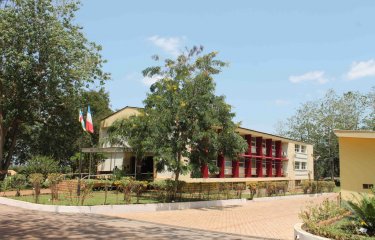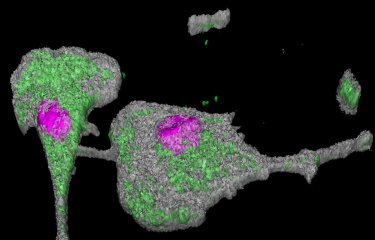A lesser known but equally crucial dimension in managing and responding to an epidemic is social sciences in health, which can shed light on populations' understanding, perception and acceptance of the risks associated with diseases. The COVID-19 pandemic is no exception. As the disease spread across the planet, clear differences in perception by populations were observed in different countries, creating fertile ground for investigation for researchers specializing in social sciences applied to health.
Social sciences are a series of academic disciplines (anthropology, sociology, communication, economics, etc.) whose common thread is the study of human societies and social interactions between individuals, groups and their environments.
During the Ebola epidemic in 2015, healthcare procedures and safe burial management went against certain cultural and religious practices, creating very high levels of mistrust among populations regarding healthcare interventions and those responsible for them. Social sciences in health became an essential factor in the successful management of the Ebola epidemic: research into the perception and degree of acceptability of certain treatments and practices by a given population was used as a basis for dialog with the aim of organizing the most appropriate response to specific needs and contexts.
The importance of giving population groups a say in their perceptions of the COVID-19 epidemic
For the past twenty years, researchers in social sciences have been looking into issues related to epidemic preparedness and response (especially perceptions: of disease, testing, social distancing measures and vaccination, the impact of misinformation or rumors, etc.) and providing support to health authorities in developing responses to potential disease outbreaks. Initial research focused on social issues related to people with HIV: perception, stigmatization, adherence to treatment, etc.
Studies in the area of social sciences in health are mainly carried out nationwide, but it can be worthwhile expanding their scope to a larger scale. The aim of the REPAIR program (International Pasteurian Research Program in Response to Coronavirus in Africa) conducted since 2020 in 10 African institutes in the Pasteur Network is to improve understanding of SARS-CoV-2 circulation on the African continent. The social sciences part of the project particularly focuses on testing and the way in which it is understood and experienced by three categories of people in four countries: healthcare professionals, individuals who have been tested and the general population.
The REPAIR project applies the same research protocol to four members of the Pasteur Network (Côte d'Ivoire, Madagascar, Niger and Tunisia) with different environments and political, epidemiological and cultural contexts, with the aim of performing a comparative socio-anthropological study.
"It is crucial to have a common framework within which to draft guidelines for health authorities, but we have given ourselves a degree of flexibility to take account of national particularities," explains Dr. Chiarella Mattern, Head of the Health and Social Sciences group within the Epidemiology and Clinical Research Unit at the Institut Pasteur de Madagascar in charge of the social sciences component of the REPAIR project.
The aim of the study is to collect qualitative data through in-depth interviews with those affected by the issues at hand.
Each institute (CERMES Niger, Institut Pasteur de Côte d'Ivoire, Institut Pasteur de Madagascar and Institut Pasteur de Tunis) interviewed three groups of people: healthcare workers, people who had been tested, and the general population. Healthcare workers shared their experience of COVID-19, healthcare practices, difficulties encountered in tackling the disease, vaccination and the impact of the epidemic on their daily lives. People who had been tested spoke about their understanding and perception of testing. The interviews with the general population will provide data on knowledge about COVID-19, the application and practice of screening, and experiences of the preventive measures introduced by the different governments.
The Institut Pasteur de Madagascar, the Institut Pasteur de Côte d'Ivoire and the Institut Pasteur de Tunis have now finished gathering data and are in the data entry phase. CERMES Niger is slightly further ahead and is drafting an initial report.
These data can only be fully understood when seen within the respective national contexts of the epidemic. Each of the four institutes has therefore agreed to produce a timeline of major events (border closures, dates of lockdowns, etc.), compiled using press reviews and an analysis of speeches by health authorities. All the results will be published in summer 2022.
The first network for social sciences in health in the Pasteur Network
Just two institutes in the Pasteur Network have a structured team in social sciences applied to health: the Institut Pasteur in Paris and the Institut Pasteur de Madagascar. Over the past ten years, several research projects in health humanities have been developed within the Pasteur Network, touching on a wide variety of topics: maternal and infant health, infectious diseases, etc.
The REPAIR project, which has a dedicated social sciences component, has provided an opportunity to formalize this working framework. It is crucial that all health humanities researchers, most of whom are isolated in their countries, can get to know their counterparts in the Pasteur Network and develop a network of expertise.
Initially, the aim is to identify key people, to determine individual needs (training, networking, etc.) and to share experiences (research topics, funding bodies, partners, methodologies used). On this basis, the idea is then to form a structured network of researchers in social sciences applied to health within the Pasteur Network, so as to boost opportunities to develop research by fostering a stimulating environment for scientific dialog on shared research questions.
"In recent years, the outbreaks of Ebola, plague in Madagascar in 2017, and COVID-19 have highlighted the importance of our discipline in terms of preparedness and response to the social dimensions of epidemics, especially the need to analyze the factors governing the success or failure of public health interventions and to analyze rumors and the demand for care. Given the impact that individual health-related behaviors can have on the success of public health interventions, it is crucial to incorporate anthropological research into work on epidemic preparedness and response, and in health research in general," concludes Dr. Mattern.





